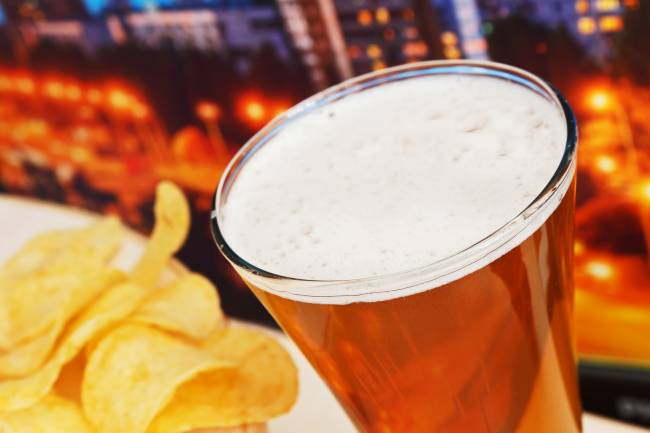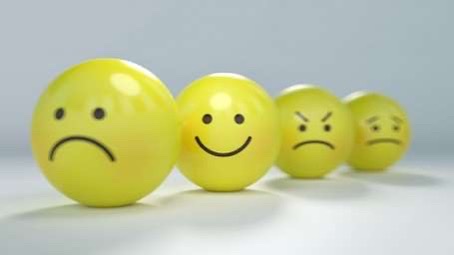Are your drinking habits in danger of affecting your mental health?
With campaigners looking at the effects of stress on our mental health, research has shown that two-thirds of us will experience a mental health problem in our lifetimes, with stress being a key factor. Three in five UK adults drink alcohol to help relieve the stresses of everyday life and to relax. With the bank holidays proving a tempting time to go out and celebrate not having to go to work, many of us will be enjoying the long weekends in May with a couple of drinks with friends and family.
However, while it seems like a good idea at the time, drinking lots of alcohol in a short space of time can actually have an adverse effect on your mental health. Here’s how…
Chemical Reaction
Let’s break this down – why is it that after a couple of beers or glasses of wine, your mood can change so quickly? One minute you’re the life and soul of the party and the next you’re sobbing on your best friend’s shoulder or preparing to give the guy who nudged you at the bar a bloody nose.
Alcohol can reduce serotonin levels, the chemical in our brain that regulates mood and emotion. Dramatic changes in the level of serotonin in the brain can lead to emotional outbursts, aggression, depression and even anxiety.
When you first start drinking, some people may feel more confident and less anxious because alcohol depresses the part of the brain which is associated with inhibition. However, as you drink more, more areas of the brain become affected. No matter what mood you start off at, if you drink a lot of alcohol you are likely to experience a negative emotional response, rather than having pleasurable effects. Alcohol can be the cause of negative emotional reactions, including anger, aggression, anxiety or depression.
Alcohol, Stress and Anxiety
After a long day in the office, some of us settle down with a drink in front of the TV to unwind. Whilst a glass of wine in the evening might help you relax after a stressful day, if consumed regularly, it can interfere with the neurotransmitters in your brain.
Your brain has two main types of neurotransmitter, excitatory (increases brain function) and inhibitory (reduces the brain’s energy levels), alcohol affects both. After a few drinks, your excitatory neurotransmitters become suppressed and the production of inhibitory neurotransmitters increase, slowing down your brain functions.
When we are drunk, perceptions become narrowed, we struggle to notice everything in our surroundings and we can become focused on certain things or people. If you are already prone to anxiety or stress, focussing on certain things may cause us to misread situations and believe them to be threatening or dangerous, heightening anxiety.
Alcohol and Depression – The Vicious Cycle

Some people have a couple of drinks when they are feeling stressed or down and this can temporarily ‘boost’ your mood. However, regular drinking can make you feel worse.
This can put many people in a very difficult situation, because whilst the initial depressive thoughts may have been masked by alcohol, it may prevent the chemicals in the brain rebalancing – leading to further depressive thoughts. This may cause some people to drink more, to mask the further depressive thoughts.
To be able to break this cycle, it is important to be aware of why you are drinking every time you reach for the bottle. It could be beneficial to tackle any stress or anxiety with exercise and relaxation techniques.
Alcohol and Addiction
It’s important to ensure you are having breaks from drinking alcohol because it prevents you becoming psychologically reliant on it and you will experience better sleep, be alert, perkier and more energised.
When we consume alcohol on a regular basis, our brains become tolerant to the chemical changes which can lead to dependency and in some cases, crippling alcohol addiction.
There are a few warning signs to look out for if you are concerned that you may be becoming addicted to alcohol:
1. Planning social events to enable yourself to drink
2. A compulsive need to drink and struggling to stop once you start
3. You are thinking about your next drink as soon as you wake up
4. You are experiencing withdrawal symptoms when you take a break from drinking; sweating, shaking and feeling nausea – all which stop when you have a drink.
If you are experiencing withdrawal symptoms from alcohol dependence, which can be both physical (tremors, sweating and nausea) or mental (depression, anxiety or irritability), it’s important you speak to your GP as soon as possible and let them know how you feel.
Treatment Options
In addition to warning signs for addiction, there are a few side-effects to consider if you are concerned that alcohol may be impacting your mental health:
1. Poor sleep after drinking
2. Constant feelings of tiredness
3. Low mood
4. Feeling anxious in everyday situations
Some cases can be relatively mild and you will find that exercising and relaxation techniques help. However, if your symptoms are more severe and begin to affect your daily life, there are other options available. Talking therapies can be extremely beneficial and some doctors will also recommend anti-depressant medications in more severe cases.
There is drug-free alternative to medication, which you can also look into called Transcranial Magnetic Stimulation (TMS). TMS is a NICE approved, non-invasive treatment that uses pulses of magnetic energy to stimulate areas of the brain known be under-active in patients with depression. It is already available in some areas through the NHS.
If you have a busy summer planned, packed with parties and drinks in the sun, remember to take it easy and enjoy alcohol in moderation: your mental wellbeing will thank you for it.
Smart TMS is the UK’s leading mental health clinic specialising in Transcranial Magnetic Stimulation.








